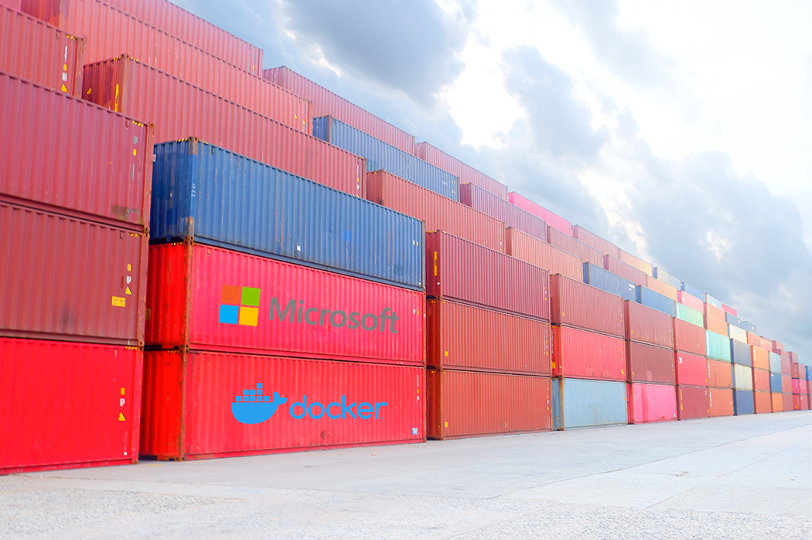
Do you remember the first time you used Docker? I do. It was about six years ago and like many folks at the time it looked like this:
docker run -it redis
I was not using Redis at the time but it seemed like a complicated enough piece of software to put this new technology through its paces. A quick Docker image pull and it was up and running. It seemed like magic. Shortly after that first Docker command I found my way to Docker Compose. At this point I knew how to run Redis and the docs had an example Python Flask application. How hard could it be to put the two together?
version: '3'
services:
web:
build: .
ports:
- "5000:5000"
redis:
image: “redis”
I understood immediately how Docker could help me shorten my developer “commute.” All the time I spent doing something else just to get to the work I wanted to be doing. It was awesome!
As time passed, unfortunately my commute started to get longer again. Maybe I needed to collaborate with a colleague or get more resources then I had locally. Ok, I can run Docker in the cloud, let me see how I can get a Docker Engine. Am I going to use another tool, set up one manually, automate the whole thing? What about updates? Maybe I should use one of the managed container services? Well then I’d have to use a different CLI and perhaps a different file format. That would be totally different from what I’m using locally. Seeing my commute bloat substantially, my team and I began to work on a solution and went on a path to find collaborators with the cloud service providers.
I am excited to finally be able to talk about the result of a collaborative set of ideas that we’ve been working on for a year to once again shorten your developer commute. Docker is expanding our strategic partnership with Microsoft and integrating the Docker experience you already know and love with Azure Container Instances (ACI).
What does that mean for you? The same workflow in Docker Desktop and with the Docker CLI and the tools you already have with all the container compute you could want. No infrastructure to manage. No clusters to provision. When it is time to go home, docker rm will stop all the meters. We will be giving an early preview of this work on stage at DockerCon tomorrow; so please register here and watch the keynote.
Let me give you a sense of how simple the process will be. You will even be able to log into Azure directly from the Docker CLI so you can connect to your Azure account. The login experience will feel very familiar, and odds are you have used it before for other services:
docker login azure
Once you are logged in, you just need to tell Docker that you want to use something besides the local engine. This is my favorite part– it is where in my opinion the magic lives. About a year ago we introduced Docker Context. Originally, it let you switch between engines (local or remote), Swarm, and Kubernetes. When it launched, I thought we needed to make this happen for any service that can run a container. If you want to shorten a developer’s commute, this is the way to do it.
docker context create aci-westus aci --aci-subscription-id xxx --aci-resource-group yyy --aci-location westusAll you need is a set of Azure credentials. If you have an Azure resource group you want to use you will be able to select it or we can create one for you. Once you have your Docker Context, you can tell Docker to switch to using it by default.
docker context use aci-westusOnce you have the context selected, it is just Docker. You can run individual containers. And you can run multiple containers with Docker Compose; look at Awesome Compose to find a compose file to try out. Or fire up Visual Studio Code and get back to doing what you wanted to do– writing code. As part of this strategic partnership with Microsoft, we are working closing with the Visual Studio Code teams to make sure the Docker experience is awesome.
Docker and Microsoft’s partnership has a long history. I am proud to be able to talk about what I have been working on for the last year. Together we are working on getting a beta ready for release in the second half of 2020. You can register for the beta here.
For more information, check out this blog post by Paul Yuknewicz, Group Product Manager, Azure Developer Tools or read the press release.
If there are other providers you would like to see come on board to bring the simplicity of the Docker experience to the cloud, then please let us know on our public roadmap. I am looking forward to telling you more about what else we have been working on soon!